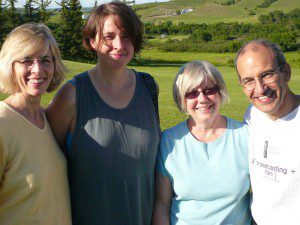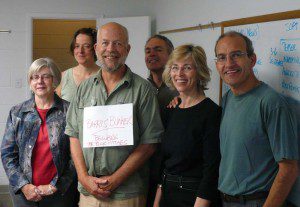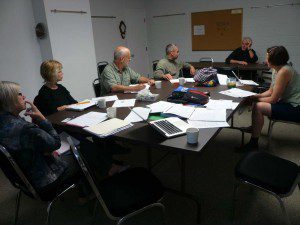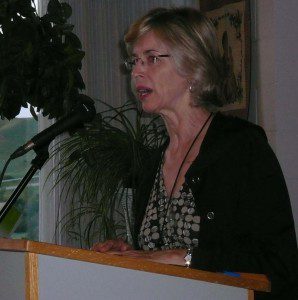
Shar Mitchell and I greeted each other like old friends. We are. But we haven’t seen each other in years. We exchanged smiles and a hug. We got caught up on spouses and kids. We reminisced about the 1970s when she – then Shar Lenz – felt disillusioned with nursing and expressed an interest in the media. I offered some leads and she landed a job in television. She never looked back. From TV producer to feature writer to actor to concert tour assistant for the ’70s band Seals and Crofts, Shar’s professional life has brimmed with travel and experience. But with pleasantries over, she asked for my help with her next challenge.
“For 10 years I’ve been carrying this story like a yoke,” she said to me this week.
Now in her early 60s, Shar has accumulated what she calls her “faith memoir” in her laptop and in an incomplete state for too long. “The Bridegroom from Baghdad” manuscript consists of two parts, 13 chapters and nearly 40 years of learning, practising and researching the Baha’i Faith. At this point, she’s wrestling with structure and confidence. That’s why we’ve met at this retreat, the Sage Hill Writing Experience, in the secluded Qu’Appelle Valley north of Regina.
“I feel compelled to bring this book – if that’s what it is – to its conclusion,” she said.

Sitting across from Shar, in the workshop room we’ve christened “the Barris Bunker,” sits a man also in his 60s. Harold Macy has struggled to complete a manuscript nearly as long as Shar has. He calls himself a “hippy baby boomer” who, in the 1970s, emigrated from the U.S. to Vancouver Island. There, he eventually realized a life-long dream, becoming a forester on 400 hectares of Crown land. Only now this thousand-acre woodlot of Douglas fir has become a statement of alternative timber harvesting.
“Logging is and will continue to be the primary source of our income,” Harold told our group as he reviewed the premise for his writing project. “But we accomplish this with the least damage to the forest.”
Macy’s brand of forestry is a tough sell in a province where corporate lumber companies routinely clear-cut the forest, chopping everything down first and deciding what’s valuable later. His manuscript, called “The Four Storey Forest,” makes his case for “stewardship” not “plunder” in B.C.’s coastal forest. He quotes an ecologist who says, “Forestry is not rocket science. It’s way more complicated than that.” So too is Harold’s book.

Linda Killick wants to write a book too, about her personal journey through the Alberta health-care system as she watched her husband fight the neurological effects of multiple sclerosis and die at 67. Not a writer by profession, Linda brings a unique command of the language of Canada’s crippled medical system to the table. She has 20 years’ experience working in the front lines of Alberta’s health-care system – as a community care manager, a registered nurse and a home-care advocate. She and I conclude her story has potential as a magazine article.
“I’ve never written in a disciplined way,” she explained to my group. “This is the first time I’ve had time to even think about what happened.”
She accepts that she is an expert on health-care issues, but says she feels like “an imposter” among the writers at this retreat. As with every writer-in-training, confidence is the toughest part of curriculum to learn. And yet, when Linda describes the first night she left her debilitated husband at a respite-care facility so she – the caregiver – could get a critical full night’s sleep, she wrote that she gave her husband a “farewell Judas kiss” and that her “tears spilled into the night and leached away any promise of relief.” No neophyte wordsmith she.
The art and craft of professional writing have intuitive elements and vocational ones. I can teach structure and style, focus and form, syntax and sourcing (although I usually do it with young protégés in editorial meetings, lecture halls and computer labs at Centennial College during 15-week semesters).
The past 10 days, my five adult writing colleagues and I have assembled for practical sessions in “the bunker.” We’ve chatted over meals at our monastery retreat and we’ve listened to novice and veteran writers read their work each evening. It might seem artificial to write in this kind of sanctuary.

But for Linda Killick seeking the words to correct home-care inadequacies, Harold Macy pressing his case for alternative forest management, and my former neighbour Shar Mitchell recounting a life of faith in dangerous places … this retreat may be just the inspiration their egos and works-in-progress require.
“I have a much clearer direction for my writing that I’m excited about,” Shar said at the end of the retreat.
Music to any mentor’s ears.